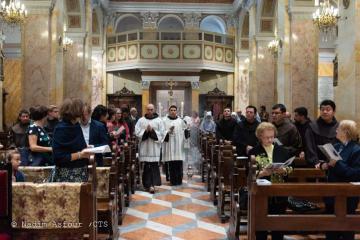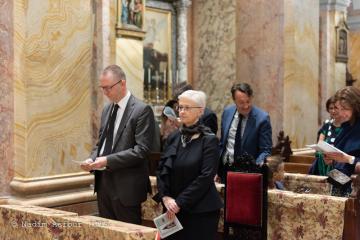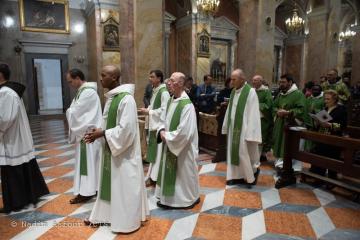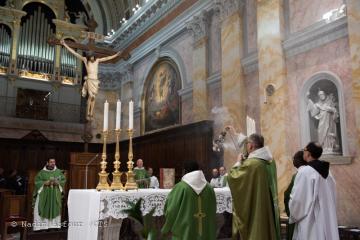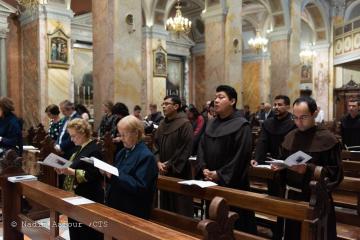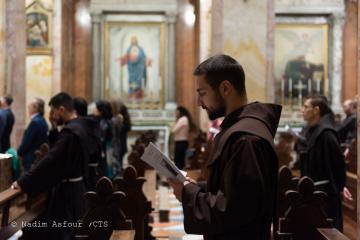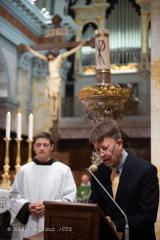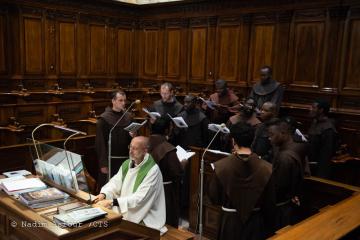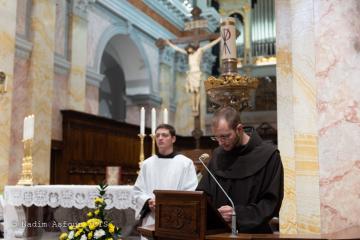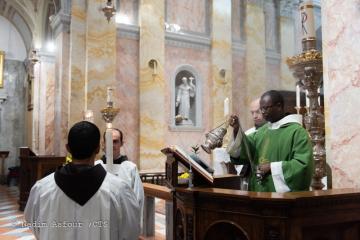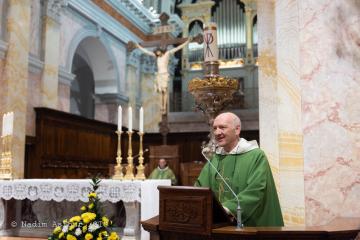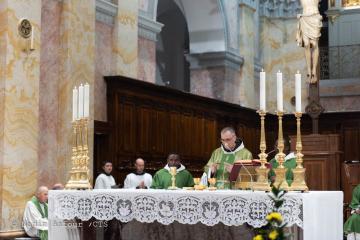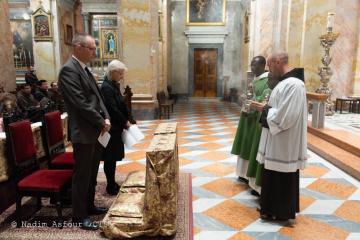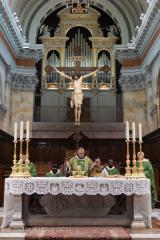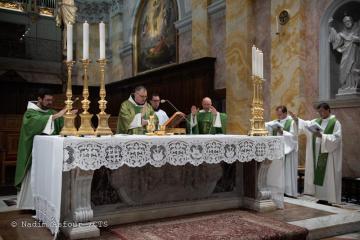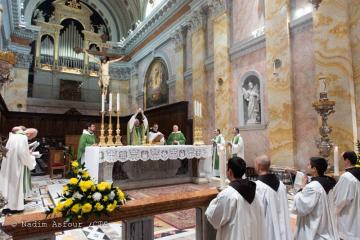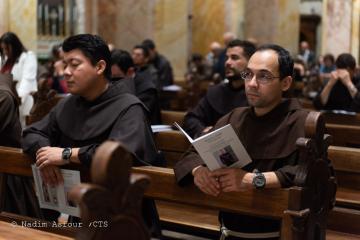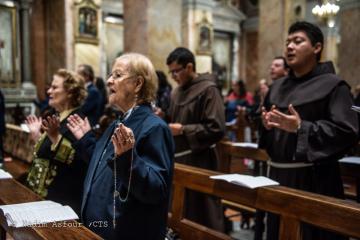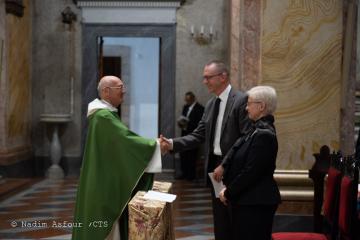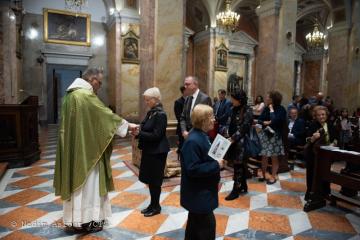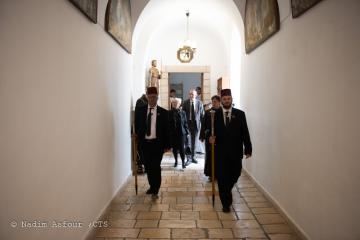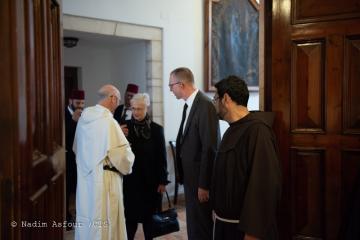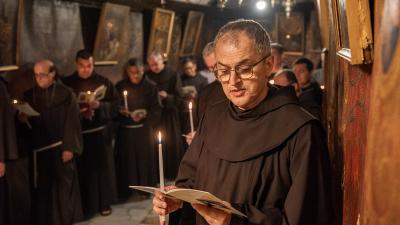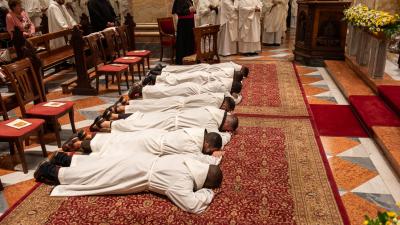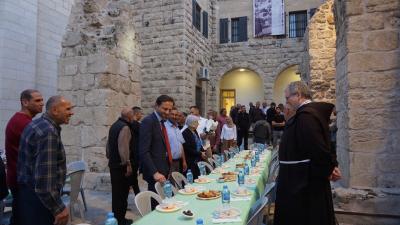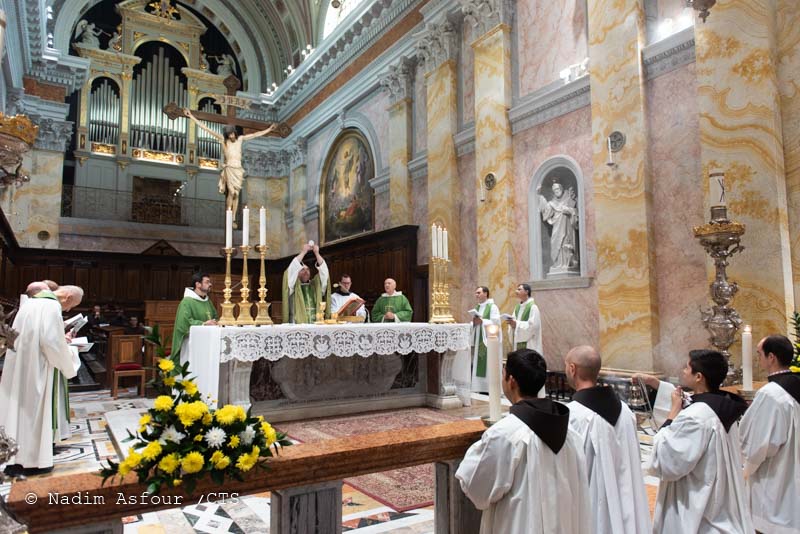
The feast day of St. Leopold has arrived four days early at the Custody of the Holy Land.15th November, one of the most important holidays for Belgium, is traditionally celebrated in Jerusalem on the Sunday preceding or following it with a Solemn Mass.
The Eucharistic Celebration in honour of King Philippe and his wife Mathilde paid tribute to the linguistic diversities of the country with readings in the three most widely spoken languages within its borders: French, Flemish and German. Fr. StéphaneMilovitch, head of the Department of Cultural Heritage of the Custody, who presided the Celebration, recalled to those present the double importance of the date: as well as the celebration for St. Leopold, 11th November was the hundredth anniversary of the Armistice which put an end to the First World War.
The sermon was given by Father Christian Eeckhout,a Dominican from the Écolebiblique et ArchéologiqueFrançaiseof Jerusalem, who emphasized how the readings of the day were closely linked to the celebration: focused on generosity, they were a valid reference to the royal family and the altruism they show in the attention towards the Christians of Jerusalem."The holiday of 15th November is a great tradition for the Custody and for the Holy Land,” said FatherEeckhout. "This tradition dates back to the period when Belgium decided to support the Christians of the Holy Land and the population of these territories that Jesus knew well, where he lived and where he gave his life." Father Christian said that 15th November was indicated as the day to pray for the royal dynasty, for the King and his family, so that they may be guided by Christian values.
"The relationship between our country and the Custody has been continuous for over 100 years,” commented the Consul-General of the Kingdom of Belgium, Danielle Haven. "We have always been present at the most important times of the Custody’s celebrations: Christmas and Easter, for example. These are moments shared with the three other countries which have always been at our side here: France, Italy and Spain." The feast day of St. Leopold, the Consul explained, does not appear in the Roman calendar but is present in the German one and is one of the two most important holidays for the Kingdom, together with 21st July. "Today is very important,” Ms Haven continued, “also because 100 years have passed since the First World War, which had implications of worldwide importance. There were many battles in Flanders: this is why keeping the memory alive of what happened in that period means so much to us."
Giovanni Malaspina


